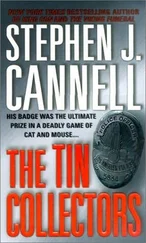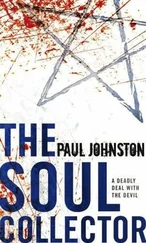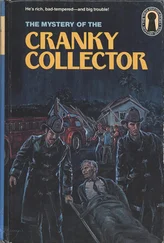“Where do you see us in five years?” Dave asked, philosophical as always when he sat down with Jonathan.
“Five years?” echoed Jonathan as he fiddled with his BlackBerry. “Let’s talk about five weeks from now.”
Dave smiled and refrained from asking Jonathan to put his new toy away. At times Dave bridled at Jonathan’s manners, but no one could argue with his results. The ISIS client list spoke for itself, and to watch Jonathan pitch ISIS to a new company—the kid could give a clinic. Dave was full of admiration for what he called the growing ISIS family, and often said that he learned more from his young colleagues than they could learn from him. Jonathan readily agreed.
“I want you to take the long view,” Dave said.
Jonathan nodded. “After the IPO, I want to see ChainLinx adopted by every Fortune 500 company, and Lockbox standard for every transaction, so no one dares to buy anything on the Web without seeing our logo guaranteeing the site’s secure. And I want at least fifty more programmers working on new products….”
“You’re thinking about more people,” Dave mused in his deliberate way.
“Of course.” Jonathan glanced at the smooth-shaven face on the other side of the desk and marveled at the way Dave missed the key words— new products , code for fingerprinting, scramblers, all the possibilities in the strange new realm Veritech was poised to enter. Dave didn’t even ask.
“We need to have a conversation with Mel,” said Dave.
“Okay.” Jonathan turned back to his BlackBerry.
Dave marveled at the way Jonathan missed the key word conversation . Attached to Mel, possibly even loyal to him for old time’s sake, Jonathan didn’t realize that conversation meant they had to let Mel go.
Yo Mel,Jonathan was texting. Find more people your slowing us down.
“Maybe we could set that up for Monday,” Dave suggested.
“I’ll be in San Jose,” said Jonathan, “but you can meet with him.”
“I think it would be good for you to be there.”
“I just talked to him,” Jonathan reassured Dave. “He knows what to do.”
Mel was finding people as fast as he could. He didn’t know how to hire faster without pulling programmers off the street. Quality did matter. “I have a process,” he told Dave.
“I respect that,” Dave assured him.
But Jonathan said, “Just speed the process up.”
He had never worked like this before. Résumés haunted his dreams. Aldwin talked about opening two new groups, and Jake demanded more support staff. Suddenly Mel was trying to hire HR people to help with all the hiring. With so much money flowing through ISIS, and so much demand for ISIS services, Mel had become the human bottleneck. “You look frazzled,” Barbara told him.
Oh, frazzled was not the word. Fragile. Dazzled. Fraggled. He woke in the morning sick with anxiety—certain that at any moment Dave would call him in for the talk. He thought about that meeting constantly: I’m sorry, Mel. It’s just not working out; you have not met our expectations. How he dreaded those words—and also longed to hear them. He was in over his head, and far too old. ISIS flew at warp speed, and as for competitors, Odin snapped up prospective hires if Mel so much as blinked. Green Knight and Akamai were always in there hustling for talent, and those were just the local companies. Mostly young and single, the programmers Mel stalked thought nothing of moving to Mountain View or Berlin or Austin. He suffered from motion sickness every day on his commute—not from the train, from the economy.
And yet … and yet, Mel had never been part of something magical before. He had never inhaled the fumes of such success, and although every fiber of his body rebelled against the insane pressure of his job, his soul rejoiced. Thirty years toiling in support services at MIT, but Mel had not been so ordinary after all. He was part of the world other people read about in newspapers. He had been one of those people, reading The Boston Globe each morning on the train, and now he was in the Globe himself—not mentioned by name, of course, but by association. He had ascended to a realm where companies were named for gods: ISIS, Inktomi, Janus, LOKI. ISIS was already the stuff of legend. “One of the most highly anticipated IPOs of the year” was just twelve days away, and Mel felt like Marco Polo, seeing firsthand what others might have written off as myth.
In the past year, he’d watched in awe as his young bosses auditioned VCs twice their age. One morning Mel arrived at work to find Jonathan scribbling the names of venture capitalists on his whiteboard under the headings “Bozos,” “Morons,” “Losers,” “Sharks.” Was this the same kid who had borrowed quarters for the vending machines at the department? There were no vending machines at ISIS. All snacks and drinks were free.
Alas, the faster ISIS grew, the more troublesome Mel’s fifty-seven-year-old body became. Nausea, insomnia, diarrhea. At first he blamed the lunches Barbara packed for him. Then he blamed the Middle Eastern food truck that pulled up each day behind the building, but everybody ate there and no one else got sick. He went for tests, and the doctor found nothing. Reluctantly Mel admitted the cause of indigestion was anxiety. As soon as he arrived at this conclusion his stomachaches subsided, and his back went out.
“What did you do to it?” his young coworkers asked him wonderingly.
“Nothing. I did nothing!” he replied.
Of course he remembered the day, the hour, the very second he threw out his back. Tuesday, October 12, 1999. Three forty-five in the afternoon. Sitting at his fifth-floor desk, he had been discussing health plans with a new hire on the phone. Carpenters were snapping cubicles together. Cardboard boxes containing workstations stood stacked against the walls, and all was quiet—except for the whoosh of programmers batting a birdie with badminton rackets.
Mel was finishing the routine medical-benefits conversation when he glanced up and saw an electrician grinning at him from a square hole in the ceiling where he’d popped out the acoustic tile.
“Yoo-hoo,” the electrician said.
Mel bristled. Carpenters didn’t bother him, nor did the badminton or the unpacking. He almost enjoyed the drag and pop of box cutters slicing cardboard—the long rips crisp and promising, like autumn and fresh school supplies—but he couldn’t conduct business with electricians wisecracking from above. “You can’t go wrong—they’re both terrific,” he explained to the new hire, as he gestured at the cable-dangling electrician to disappear. “And we do offer dental.” He stood, pulling the receiver with him, but the cord wasn’t long enough and his phone slid off the desk. Too quickly, he turned to scoop it up. A prickle, like an electric shock, raked his left side, an agonizing spasm. Pain held him in its vice.
That had been six weeks ago. Now Mel had bad days and worse days. There were mornings he stood on the train, all the way from Canaan to South Station, because sitting was too painful. He took the Red Line to Kendall Square and counted stops. Just get me to Charles / MGH, just get me aboveground, he pleaded silently, trying to bargain with his back. All he had to do was make it until the train emerged from its tunnel to rattle over the bridge. Then he could look out at the icy river and dark trees, the boathouses rosy in the brief winter light. When the train descended again, he held the metal pole and told himself, Only one more stop and then the music, and he would try to hold on until Kendall Square Station where long levers in the wall were wired to chimes hanging between the inbound and outbound tracks. Like a parent trying to appease a child, he would treat himself to a gentle pull of a lever, and listen for the soft chime like temple bells in the midst of rushing trains and chattering students and the buskers playing amplified guitars.
Читать дальше












